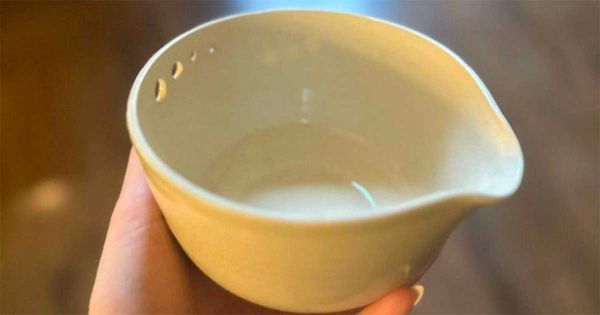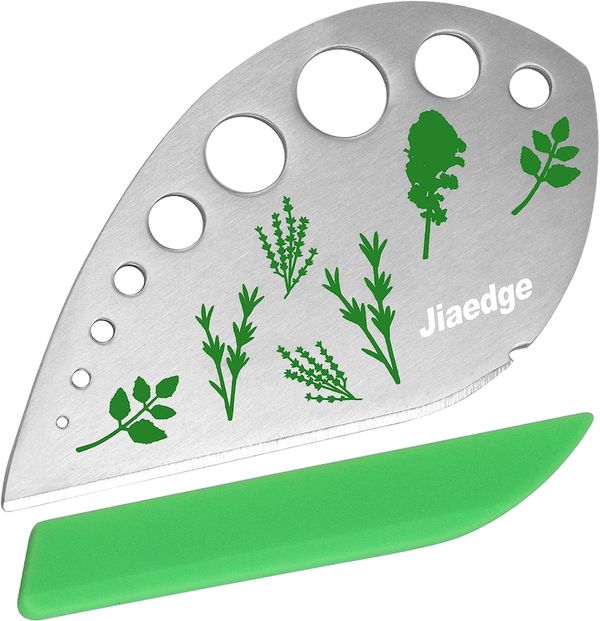Are you tired of spending precious minutes removing leaves from herb stems? Say goodbye to this tedious task with the help of the amazing herb remover!

What is an Herb Remover?
An herb remover is a handy tool designed to effortlessly separate herb leaves from their stems. With different-sized holes to accommodate various types of herbs, using it is a breeze. Simply insert the stem into the appropriate hole, give it a gentle drag, and watch as the leaves easily fall off. Some herb removers even come with blades, allowing you to strip and chop the herbs in one go. Others have attached bowls to catch the leaves, making the process even more convenient.

Save Time and Elevate Your Cooking
Using an herb remover will revolutionize the way you cook with fresh herbs. Once you experience the speed and efficiency of this tool, you’ll be inspired to incorporate herbs more frequently into your recipes.

It might even encourage you to explore new and exciting herbs that you’ve never tried before. But before you dive in, here are some essential tips to remember:
- Wash and Dry Fresh Herbs: Always wash and dry any fresh herbs you purchase to remove any pests or dirt. This helps keep them fresh and ensures maximum flavor in your dishes.
- Explore Different Flavors: There’s a wide variety of fresh herbs to choose from, each offering its own unique taste. For example:
- Basil: Known for its sweet and slightly spicy flavor, basil is perfect for Mediterranean recipes and homemade pasta sauces.
- Rosemary: With a fantastic woody and pine-like flavor, rosemary pairs well with lamb chops, roast beef, and roasted potatoes.
- Cilantro: Bright and zesty, cilantro is a common ingredient in Asian and Latin American cuisine. It adds a flavorful touch to both raw and cooked dishes.
- Dill: Offering a delicate, robust, and earthy flavor, dill is frequently used in German and Scandinavian cuisine. It pairs well with poultry, yogurt, shellfish, salad, and more.
- Marjoram: Slightly softer in flavor than oregano, marjoram complements vegetables, meat, salads, soups, sauces, fish, and many other dishes.
- Thyme: A key ingredient in French cuisine, thyme has a floral scent and a powerful flavor that enhances the taste of roasted chicken, bread, potatoes, and cocktails.
- Mint: Known for its association with drinks and pastries, mint can also be used in salads, curries, sandwiches, and fruit salads for a refreshing twist.
- Parsley: With its fresh and delicate flavor, parsley is a versatile herb that can be used as a garnish, added to soups, or paired with pasta, eggs, and lemon.
- Proper Usage: Each herb has its own characteristics when it comes to cooking. For example:
- Basil: Add the leaves near the end of the cooking process to preserve its flavor.
- Oregano: Use it at the beginning of the cooking process, as it can withstand heat. However, use it sparingly to avoid overpowering other ingredients.
- Marjoram: While using the leaves in dishes, keep the stems to enhance the flavor of stocks and soups.
By following these tips and utilizing an herb remover, you can effortlessly enjoy the wonderful flavors of fresh herbs in your cooking. Don’t be afraid to experiment and discover new taste sensations. With this incredible tool, preparing fresh herbs has never been more enjoyable!